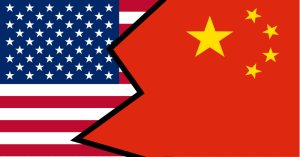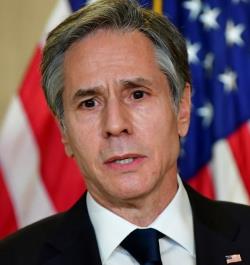|
 The U.S. State Department will be taking a strong line with China over structural and political issues based on the first day of bilateral talks in Alaska. Secretary of State Antony Blinken noted that the U.S. and China could achieve many things together where their interests converge. The U.S. would however continue to express concerns and act over actions by China including repression of Uyghurs in Xingjian Province, suppressing democracy in Hong Kong, cyber attacks on the U.S., economic coercion and threats to the independence of Taiwan. The U.S. State Department will be taking a strong line with China over structural and political issues based on the first day of bilateral talks in Alaska. Secretary of State Antony Blinken noted that the U.S. and China could achieve many things together where their interests converge. The U.S. would however continue to express concerns and act over actions by China including repression of Uyghurs in Xingjian Province, suppressing democracy in Hong Kong, cyber attacks on the U.S., economic coercion and threats to the independence of Taiwan.
|
|

Antony Blinken Secretary of State
|
Blinken was supported by Jake Sullivan, the U.S. National Security Advisor, who criticized both military and economic coercion by China. He noted that U.S. echoed the concerns of Asian nations including Japan and South Korea. Sullivan noted, “We do not seek conflict but we will welcome stiff competition but we will always stand up for our principles, for our people and for our friends.” Based on a policy of creating harmony among allies, the present Administration intends to create a consensus and to unify opposition to what must be regarded as aggressive and coercive actions by China.
At the end of the day trade relations between China and the U.S. will be based on the principle of mutual satisfaction. Since China needs corn, soy and other commodities and will import them from the U.S. and our competitors, we should continue to supply but should use whatever leverage we have to eliminate the undesirable aspects of our relationship with China. These include unfair trade practices, cyber espionage, neglect of intellectual property and support of government-owned companies that dump products on international markets in defiance of WTO rules.
|